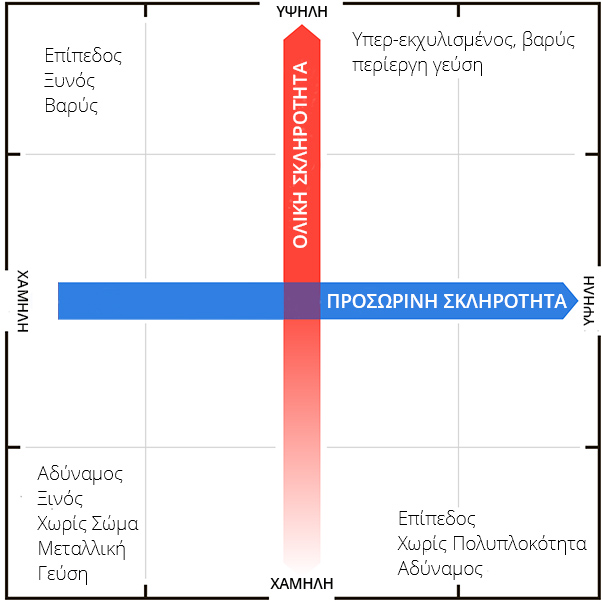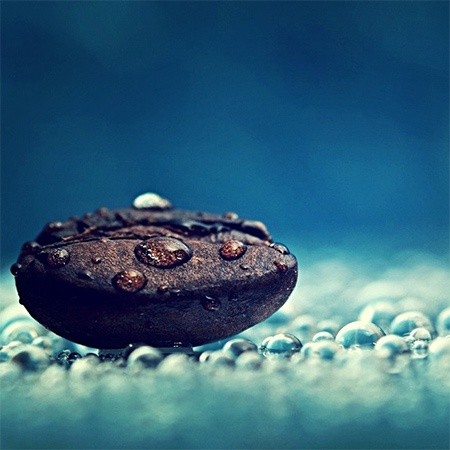How does water affect the quality of our coffee?

We have cleaned our machine, got the best blend, got it grinder the right way, we have a relative experience in brewing... yet we forget a very important factor in the success of our coffee!
As coffee enthusiasts, we tend to scrutinize the factors that contribute to a delightful cup of coffee, such as choosing the right blend, the right coffee machine, the cleaning of our equipment, and of course the small and big secrets of the various brewing methods. Often, however, we neglect to control a key ingredient, which even accounts for almost 98% of our cup. We are talking, of course, about water!
Indeed, whatever extraction method we use, almost 98% of a cup of coffee consists of ... water. Although transparent and deliciously neutral, the water hides many ingredients in it, which can highlight the taste our coffee or, of course, devastate a good extraction.
What characteristics water should have for a proper extraction?
Although it seems simple and obvious, the proper water for coffee extraction can prove to be a particularly difficult task. Initially, it is good to know that even if the water in our area is drinkable, it does not necessarily mean it is suitable for our coffee. In general, the water we use should be clean, free from odors and flavors and cool at temperature. Avoid using hot tap water as, due to staying in the water heater or boiler, we usually have microparticles that will affect our cup.
No mater how good tap water is, it can affect the quality of our coffee, mainly in the following ways:
- With the presence of chlorine, a component that is widely used in water supply systems
- Because of the hardness, ie the presence of magnesium and calcium salts. The salts may be acidic and carbonate (temporary hardness) or chlorides, nitrates, phosphates and silicates (permanent hardness). The sum of the two sub-totals is the total hardness of the water.
- Due to the presence of (non-toxic) micro-organisms and microparticles
- Due to pH
In the vast majority of cases, and always under the condition that the water in our area has been described as potable, the fluctuations in the above indices are small and are not readily perceived in our everyday life - with the exception of water hardness, which is responsible for accumulation of salt in appliances, fountains and in the kitchen area. However, even these small deviations can affect the extraction of our coffee, significantly altering its flavor, but also wasting and straining our equipment.
Ηow does unsuitable extraction affects coffee brewing?
 Fluctuations in house water prices are small and often, if we are not professional, difficult to measure. However, the effects on the taste and the texture of the coffee may be intense, either by muting some of its features or by overstating some others.
Fluctuations in house water prices are small and often, if we are not professional, difficult to measure. However, the effects on the taste and the texture of the coffee may be intense, either by muting some of its features or by overstating some others.
A Ph disorder can highlight or eliminate the acidity of our coffee, significantly altering its tasting profile. If the pH of our water is significantly alkaline, the acidity will decrease, and the coffee will appear flat, while a slightly acidic water will emphasize this feature, often with particularly unpleasant results. The presence of chlorine in water affects the flavor characteristics of coffee in large quantities, it can also "mute" its aroma, and usually it also drops the pH of water significantly. More complicated are the things with regard to the hardness of water, which affects our extractions in various ways. The diagram above summarizes the effect of total and temporary water hardness on coffee extraction.
Of course, we must not forget that the above features do not only affect the extraction itself, but also our equipment. Water hardness and increased pH are responsible both for the accumulation of salts in coffee machines and for the oxidation of some parts of it, which in turn naturally affects our extractions but also significantly reduces its life span.
Is its possible to always have water suitable for coffee brewing?
 Initially, it is good to be aware of the quality of water in our area, although this is not always easy. Our guide will necessarily be our brewings, which will direct us in the direction needed.
Initially, it is good to be aware of the quality of water in our area, although this is not always easy. Our guide will necessarily be our brewings, which will direct us in the direction needed.
Although many recommend the use of bottled water, it is usually not a good solution, as for a thoroughly successful extraction, the thoughtful presence of salts is desirable - it is their excessive presence causing problems. Even worse things are with deionized water, which is not suitable for making coffee and should be avoided.
The solution most often comes with the installation of the appropriate water filter in our faucet. Water filters have the property of retaining chlorine, reducing the hardness of water and retaining any particles. In the case of particularly hard water or in the case of a horeca business, it is advisable to look for more specialized filters, such as reverse osmosis filters or activated carbon filters, but in most household situations, things are easier.
We do not, of course, omit to clean and thoroughly desalt our machine, using only approved and suitable for this purpose cleaning products for coffee makers. Not only will we extend the life of our equipment considerably, but we will see a significant difference in the quality of our daily coffee.
Coffee can really become science, sometimes. Maybe in some all these details seem exaggerated - but nothing stops us from enjoying the coffee we deserve!










